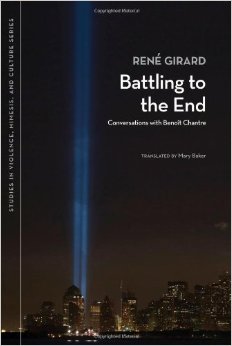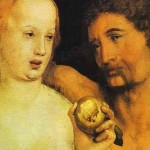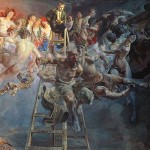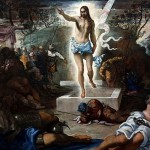I recently received an appointment as a Teaching Assistant for a political science course. The best thing about it is how the readings dovetail into my own research into religion and literature. The course is POLS 307: Religion and World Politics.
If you know any students at the University of Washington, tell them to run out and grab the very few remaining spots for this course. They don’t want to miss it.
The primary lecturer is Anthony Gill, who is associated with the “rational choice” or “economic study of religion” camp of sociology pioneered by Rodney Stark (formerly of the University of Washington). Even though these researchers take their cues from Smith, Bentham, and Mill, their formulations of “the greatest possible good” twist the originals out of shape enough to make allowances for “transcendent goods” such as worship, sacrifice, and hope for heaven.
This isn’t your father’s utilitarianism, but the proof is in the pudding.
I’ll leave you with the intriguing six book POLS 307 list. I’ll also add four (plus two) recent books of my own that I think are the best dialogue partners for the class reading list. In many ways this is a list at odds with itself, so it’s your task to make, or wreck, the dialectic. Books and blurbs will now follow.
[Other TOP 10 Cosmos lists can be accessed here]
1. POL S 307 Reading List
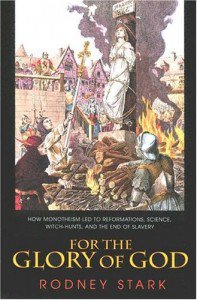
Rodney Stark’s provocative new book For the Glory of God argues that, whether we like it or not, people acting for the glory of God have formed our modern culture. Continuing his project of identifying the widespread consequences of monotheism, Stark shows that the Christian conception of God resulted–almost inevitably and for the same reasons–in the Protestant Reformation, the rise of modern science, the European witch-hunts, and the Western abolition of slavery. In the process, he explains why Christian and Islamic images of God yielded such different cultural results, leading Christians but not Muslims to foster science, burn “witches,” and denounce slavery.
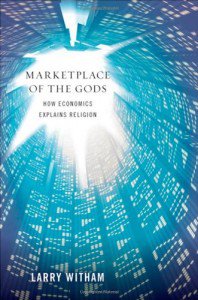
In Marketplace of the Gods, award-winning journalist Larry Witham tells the inside story of this expanding “economic approach” to religion, the puzzles it tries to solve, the controversies it has stirred, and the people who are making it happen. He shows that the economic approach, while evoking images of stock markets or accounting ledgers, actually begins with a simple idea about human beings as rational actors, judging costs and benefits in life. Every life has limits, so human experience is a series of trade-offs, balancing resources to make choices for the best possible benefits. As the economics of religion shows, this model can be applied to the rich story of the human race and its gods. Beginning with the individual, the choices in religion shape households, groups, movements, and entire “religious economies” of nations. On the one hand, this mixing of the profane and the sacred, the economic and the religious, is an exciting exchange of ideas between economics, sociology, psychology, history, and theology. On the other, it has spurred a lively protest. Indeed, for some, the economic approach seems to transform our good angels into grubby consumers.
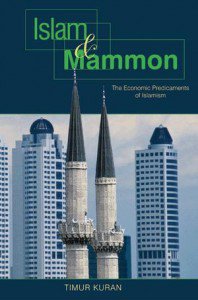
In this bold and timely critique, Timur Kuran argues that the doctrine of Islamic economics is simplistic, incoherent, and largely irrelevant to present economic challenges. Observing that few Muslims take it seriously, he also finds that its practical applications have had no discernible effects on efficiency, growth, or poverty reduction. Why, then, has Islamic economics enjoyed any appeal at all? Kuran’s answer in Islam and Mammon is that the real purpose of Islamic economics has not been economic improvement but cultivation of a distinct Islamic identity to resist cultural globalization.
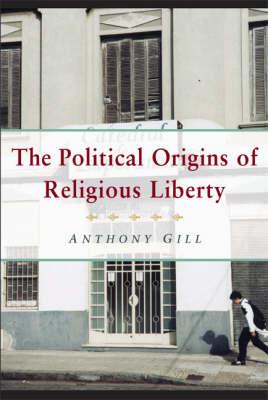
Throughout history, governments have attempted to control religious organizations and limit religious freedom. However, over the past two hundred years the world has witnessed an expansion of religious liberty. What explains this rise in religious freedom? Anthony Gill argues in The Political Origins of Religious Liberty that political leaders are more likely to allow religious freedom when such laws affect their ability to stay in power, and/or when religious freedoms are seen to enhance the economic well-being of their country.
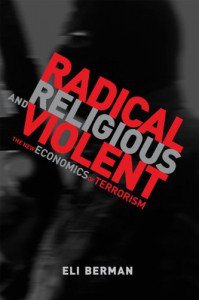
How do radical religious sects run such deadly terrorist organizations? Hezbollah, Hamas, Lashkar-e-Taiba, and the Taliban all began as religious groups dedicated to piety and charity. Yet once they turned to violence, they became horribly potent, executing campaigns of terrorism deadlier than those of their secular rivals. In Radical, Religious, and Violent, Eli Berman approaches the question using the economics of organizations. He first dispels some myths: radical religious terrorists are not generally motivated by the promise of rewards in the afterlife (including the infamous seventy-two virgins) or even by religious ideas in general. He argues that these terrorists (even suicide terrorists) are best understood as rational altruists seeking to help their own communities.
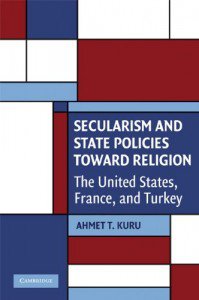
Why do secular states pursue different policies toward religion? Secularism and State Policies toward Religion provides a generalizable argument about the impact of ideological struggles on the public policy making process, as well as a state-religion regimes index of 197 countries. More specifically, it analyzes why American state policies are largely tolerant of religion, whereas French and Turkish policies generally prohibit its public visibility, as seen in their bans on Muslim headscarves. In the United States, the dominant ideology is “passive secularism,” which requires the state to play a passive role, by allowing public visibility of religion. Dominant ideology in France and Turkey is “assertive secularism,” which demands that the state play an assertive role in excluding religion from the public sphere.
2. My Own Suggested Supplemental Reading
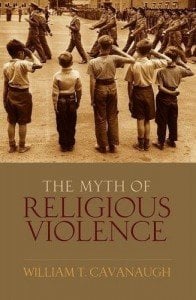
The idea that religion has a dangerous tendency to promote violence is part of the conventional wisdom of Western societies, and it underlies many of our institutions and policies, from limits on the public role of religion to efforts to promote liberal democracy in the Middle East. William T. Cavanaugh challenges this conventional wisdom in The Myth of Religious Violence by examining how the twin categories of religion and the secular are constructed. A growing body of scholarly work explores how the category ‘religion’ has been constructed in the modern West and in colonial contexts according to specific configurations of political power. Cavanaugh draws on this scholarship to examine how timeless and transcultural categories of ‘religion and ‘the secular’ are used in arguments that religion causes violence.
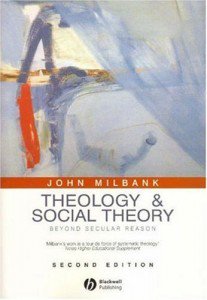
In recent years, theology has tried to legitimate itself by absorbing the method and conclusions of the social sciences. However, theologians are too little aware of the theological and anti-theological assumptions built into these disciplines themselves. In retracing the genesis of scientific discourses about society, John Milbank’s highly acclaimed Theology and Social Theory brings these assumptions to light, and shows how their hidden presence compromises claims to scientific status. On this basis it calls into question the whole enterprise of sociology of religion, and argues that contemporary political theology has overrated Marxism and sociology in neglecting the importance of specifically Christian traditions of social thought. At the same time as developing a specific and controversial argument, the book provides the only existing comprehensive treatment of the relation between theology and social theory, all the way from Plato to Deleuze.
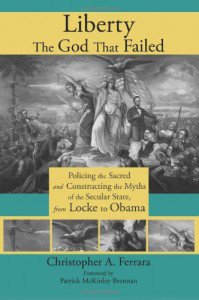
Christopher Ferrara, in Liberty, the God That Failed, offers a counter-narrative of unique power and scope, he unmasks the promised ordered liberty of the classical liberal tradition as a sham; the liberty guaranteed, a chimera. In his telling, the false god of a new political order–Liberty–was born in thought long before America’s founding, and gained increasing devotion as it slowly amassed power during the first century of the nation’s existence. Today it reveals its full might, as we bear the weight of its oppressive decrees, and experience the emptiness of the secular order it imposes upon us. Ferrara destroys multiple myths constructed by the secular state with a relentless uncovering of truths hidden by both liberal and conservative/libertarian accounts of what has gone wrong. In this brilliant retelling of American history and political life, the author asks us to open our eyes to harsh realities, but also to the possibilities for a rightly ordered society and the true liberty that can still be ours.
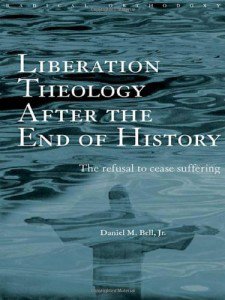
In Liberation Theology After the End of History Daniel Bell assesses the impact of Christian resistance to capitalism in Latin America, and the implications of theological debates that have emerged from this. He uses postmodern critical theory to investigate capitalism, its effect upon human desire and the Church’s response to it, in a thorough account of the rise, failure and future prospects of Latin American liberation theology.
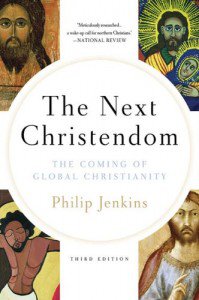
In this new and substantially expanded Third Edition of The Next Christendom, Philip Jenkins continues to illuminate the remarkable expansion of Christianity in the global South–in Africa, Asia, and Latin America. Drawing upon the extensive new scholarship that has appeared on this topic in recent years, he asks how the new Christianity is likely to affect the poor, among whom it finds its most devoted adherents. How should we interpret the enormous success of prosperity churches across the Global South? Politically, what will be the impact of new Christian movements? Will Christianity contribute to liberating the poor, to give voices to the previously silent, or does it threaten only to bring new kinds of division and conflict? Does Christianity liberate women, or introduce new scriptural bases for subjection?
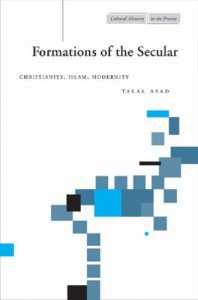
Formations of the Secular opens with the provocative query “what might an anthropology of the secular look like?” this book explores the concepts, practices, and political formations of secularism, with emphasis on the major historical shifts that have shaped secular sensibilities and attitudes in the modern West and the Middle East. The conclusion is that the secular cannot be viewed as a successor to religion, or be seen as on the side of the rational. It is a category with a multi-layered history, related to major premises of modernity, democracy, and the concept of human rights. This book will appeal to anthropologists, historians, religious studies scholars, as well as scholars working on modernity.
Clausewitz, a firsthand witness to the Napoleonic Wars, understood the nature of modern warfare. Far from controlling violence, politics follows in war’s wake: the means of war have become its ends.

